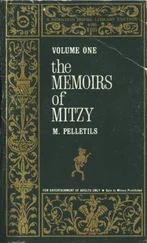Fanny Burney - Cecilia; Or, Memoirs of an Heiress. Volume 3
Здесь есть возможность читать онлайн «Fanny Burney - Cecilia; Or, Memoirs of an Heiress. Volume 3» — ознакомительный отрывок электронной книги совершенно бесплатно, а после прочтения отрывка купить полную версию. В некоторых случаях можно слушать аудио, скачать через торрент в формате fb2 и присутствует краткое содержание. Жанр: foreign_antique, foreign_prose, Зарубежные любовные романы, на английском языке. Описание произведения, (предисловие) а так же отзывы посетителей доступны на портале библиотеки ЛибКат.
- Название:Cecilia; Or, Memoirs of an Heiress. Volume 3
- Автор:
- Жанр:
- Год:неизвестен
- ISBN:нет данных
- Рейтинг книги:5 / 5. Голосов: 1
-
Избранное:Добавить в избранное
- Отзывы:
-
Ваша оценка:
- 100
- 1
- 2
- 3
- 4
- 5
Cecilia; Or, Memoirs of an Heiress. Volume 3: краткое содержание, описание и аннотация
Предлагаем к чтению аннотацию, описание, краткое содержание или предисловие (зависит от того, что написал сам автор книги «Cecilia; Or, Memoirs of an Heiress. Volume 3»). Если вы не нашли необходимую информацию о книге — напишите в комментариях, мы постараемся отыскать её.
Cecilia; Or, Memoirs of an Heiress. Volume 3 — читать онлайн ознакомительный отрывок
Ниже представлен текст книги, разбитый по страницам. Система сохранения места последней прочитанной страницы, позволяет с удобством читать онлайн бесплатно книгу «Cecilia; Or, Memoirs of an Heiress. Volume 3», без необходимости каждый раз заново искать на чём Вы остановились. Поставьте закладку, и сможете в любой момент перейти на страницу, на которой закончили чтение.
Интервал:
Закладка:
The man made no answer, but still turned away from her; a glance, however, of his eye, which the next instant he fixed upon the ground, startled her; she moved round to look at him again,—and perceived Mr Belfield!
“Good God!” she exclaimed; but seeing him still retreat, she recollected in a moment how little he would be obliged to her for betraying him, and suffering him to go on, turned back to her party, and led the way again into the house.
As soon as the first emotion of her surprise was over, she enquired how long John had belonged to this cottage, and what was his way of life.
The woman answered he had only been with them a week, and that he went out to day-labour with her husband.
Cecilia then, finding their stay kept him from his employment, and willing to save him the distress of being seen by Mr Arnott or Mrs Harrel, proposed their returning home. She grieved most sincerely at beholding in so melancholy an occupation a young man of such talents and abilities; she wished much to assist him, and began considering by what means it might be done, when, as they were walking from the cottage, a voice at some distance called out “Madam! Miss Beverley!” and, looking round, to her utter amazement she saw Belfield endeavouring to follow her.
She instantly stopt, and he advanced, his hat in his hand, and his whole air indicating he sought not to be disguised.
Surprised at this sudden change of behaviour, she then stept forward to meet him, accompanied by her friends: but when they came up to each other, she checked her desire of speaking, to leave him fully at liberty to make himself known, or keep concealed.
He bowed with a look of assumed gaiety and ease, but the deep scarlet that tinged his whole face manifested his internal confusion; and in a voice that attempted to sound lively, though its tremulous accents betrayed uneasiness and distress, he exclaimed, with a forced smile, “Is it possible Miss Beverley can deign to notice a poor miserable day-labourer such as I am? how will she be justified in the beau monde, when even the sight of such a wretch ought to fill her with horror? Henceforth let hysterics be blown to the winds, and let nerves be discarded from the female vocabulary, since a lady so young and fair can stand this shock without hartshorn or fainting!”
“I am happy,” answered Cecilia, “to find your spirits so good; yet my own, I must confess, are not raised by seeing you in this strange situation.”
“My spirits!” cried he, with an air of defiance, “never were they better, never so good as at this moment. Strange as seems my situation, it is all that I wish; I have found out, at last, the true secret of happiness! that secret which so long I pursued in vain, but which always eluded my grasp, till the instant of despair arrived, when, slackening my pace, I gave it up as a phantom. Go from me, I cried, I will be cheated no more! thou airy bubble! thou fleeting shadow! I will live no longer in thy sight, since thy beams dazzle without warming me! Mankind seems only composed as matter for thy experiments, and I will quit the whole race, that thy delusions may be presented to me no more!”
This romantic flight, which startled even Cecilia, though acquainted with his character, gave to Mrs Harrel and Mr Arnott the utmost surprize; his appearance, and the account they had just heard of him, having by no means prepared them for such sentiments or such language.
“Is then this great secret of happiness,” said Cecilia, “nothing, at last, but total seclusion from the world?”
“No, madam,” answered he, “it is Labour with Independence.”
Cecilia now wished much to ask some explanation of his affairs, but was doubtful whether he would gratify her before Mrs Harrel and Mr Arnott, and hurt to keep him standing, though he leant upon a stick; she told him, therefore, she would at present detain him no longer, but endeavour again to see him before she quitted her friends.
Mr Arnott then interfered, and desired his sister would entreat Miss Beverley to invite whom she pleased to his house.
Cecilia thanked him, and instantly asked Belfield to call upon her in the afternoon.
“No, madam, no,” cried he, “I have done with visits and society! I will not so soon break through a system with much difficulty formed, when all my future tranquility depends upon adhering to it. The worthlessness of mankind has disgusted me with the world, and my resolution in quitting it shall be immoveable as its baseness.”
“I must not venture then,” said Cecilia, “to enquire—”
“Enquire, madam,” interrupted he, with quickness, “what you please: there is nothing I will not answer to you,—to this lady, to this gentleman, to any and to every body. What can I wish to conceal, where I have nothing to gain or to lose? When first, indeed, I saw you, I involuntarily shrunk; a weak shame for a moment seized me, I felt fallen and debased, and I wished to avoid you: but a little recollection brought me back to my senses, And where, cried I, is the disgrace of exercising for my subsistence the strength with which I am endued? and why should I blush to lead the life which uncorrupted Nature first prescribed to man?”
“Well, then,” said Cecilia, more and more interested to hear him, “if you will not visit us, will you at least permit us to return with you to some place where you can be seated?”
“I will with pleasure,” cried he, “go to any place where you may be seated yourselves; but for me, I have ceased to regard accommodation or inconvenience.”
They then all went back to the cottage, which was now empty, the woman being out at work.
“Will you then, Sir,” said Cecilia, “give me leave to enquire whether Lord Vannelt is acquainted with your retirement, and if it will not much surprize and disappoint him?”
“Lord Vannelt,” cried he, haughtily, “has no right to be surprised. I would have quitted his house, if no other, not even this cottage, had a roof to afford me shelter!”
“I am sorry, indeed, to hear it,” said Cecilia; “I had hoped he would have known your value, and merited your regard.”
“Ill-usage,” answered he, “is as hard to relate as to be endured. There is commonly something pitiful in a complaint; and though oppression in a general sense provokes the wrath of mankind, the investigation of its minuter circumstances excites nothing but derision. Those who give the offence, by the worthy few may be hated; but those who receive it, by the world at large will be despised. Conscious of this, I disdained making any appeal; myself the only sufferer, I had a right to be the only judge, and, shaking off the base trammels of interest and subjection, I quitted the house in silent indignation, not chusing to remonstrate, where I desired not to be reconciled.”
“And was there no mode of life,” said Cecilia, “to adopt, but living with Lord Vannelt, or giving up the whole world?”
“I weighed every thing maturely,” answered he, “before I made my determination, and I found it so much, the most eligible, that I am certain I can never repent it. I had friends who would with pleasure have presented me to some other nobleman; but my whole heart revolted against leading that kind of life, and I would not, therefore, idly rove from one great man to another, adding ill-will to disgrace, and pursuing hope in defiance of common sense; no; when I quitted Lord Vannelt, I resolved to give up patronage for ever.
“I retired to private lodgings to deliberate what next could be done. I had lived in many ways, I had been unfortunate or imprudent in all. The law I had tried, but its rudiments were tedious and disgusting; the army, too, but there found my mind more fatigued with indolence, than my body with action; general dissipation had then its turn, but the expence to which it led was ruinous, and self-reproach baffled pleasure while I pursued it; I have even—yes, there are few things I have left untried,—I have even,—for why now disguise it?—”
Читать дальшеИнтервал:
Закладка:
Похожие книги на «Cecilia; Or, Memoirs of an Heiress. Volume 3»
Представляем Вашему вниманию похожие книги на «Cecilia; Or, Memoirs of an Heiress. Volume 3» списком для выбора. Мы отобрали схожую по названию и смыслу литературу в надежде предоставить читателям больше вариантов отыскать новые, интересные, ещё непрочитанные произведения.
Обсуждение, отзывы о книге «Cecilia; Or, Memoirs of an Heiress. Volume 3» и просто собственные мнения читателей. Оставьте ваши комментарии, напишите, что Вы думаете о произведении, его смысле или главных героях. Укажите что конкретно понравилось, а что нет, и почему Вы так считаете.












